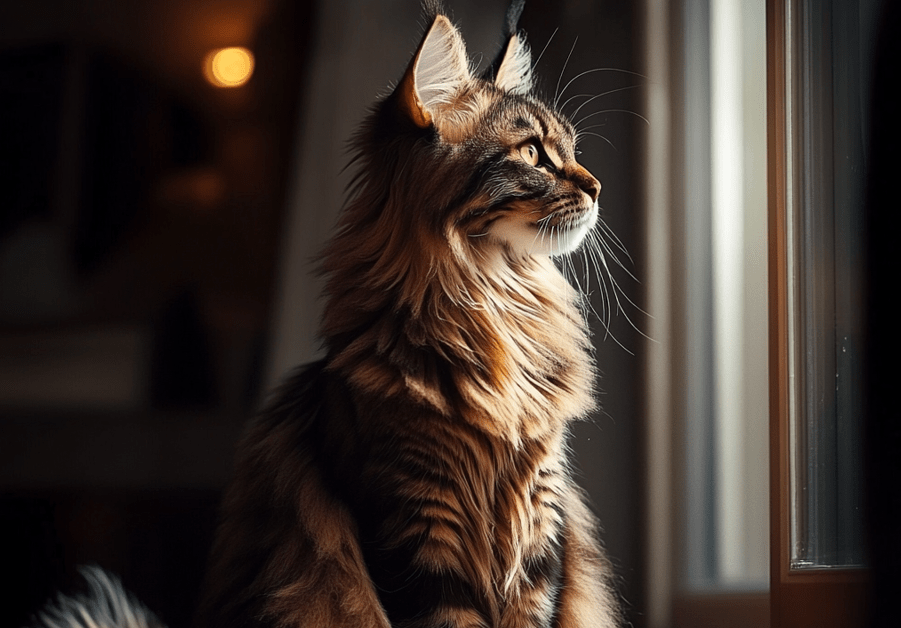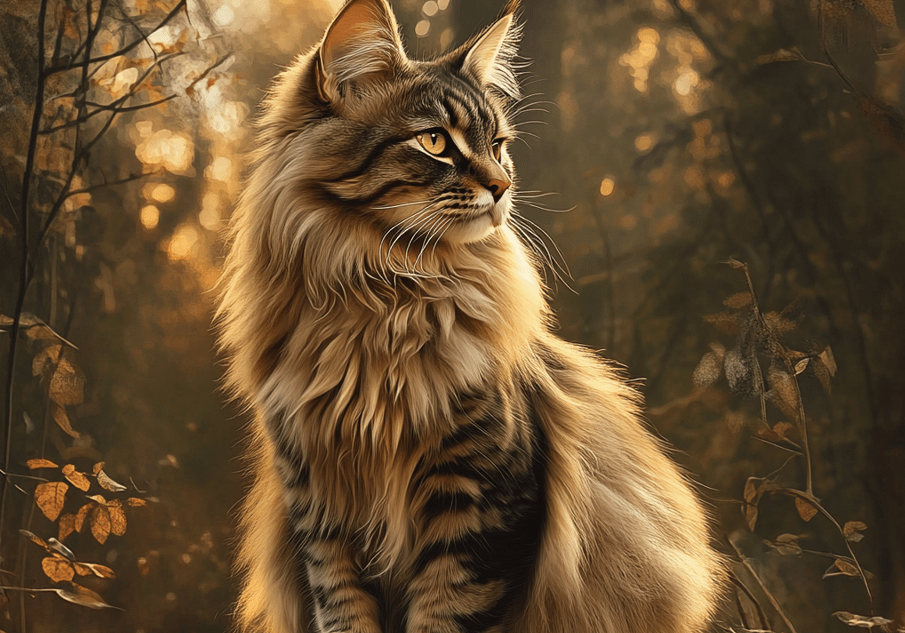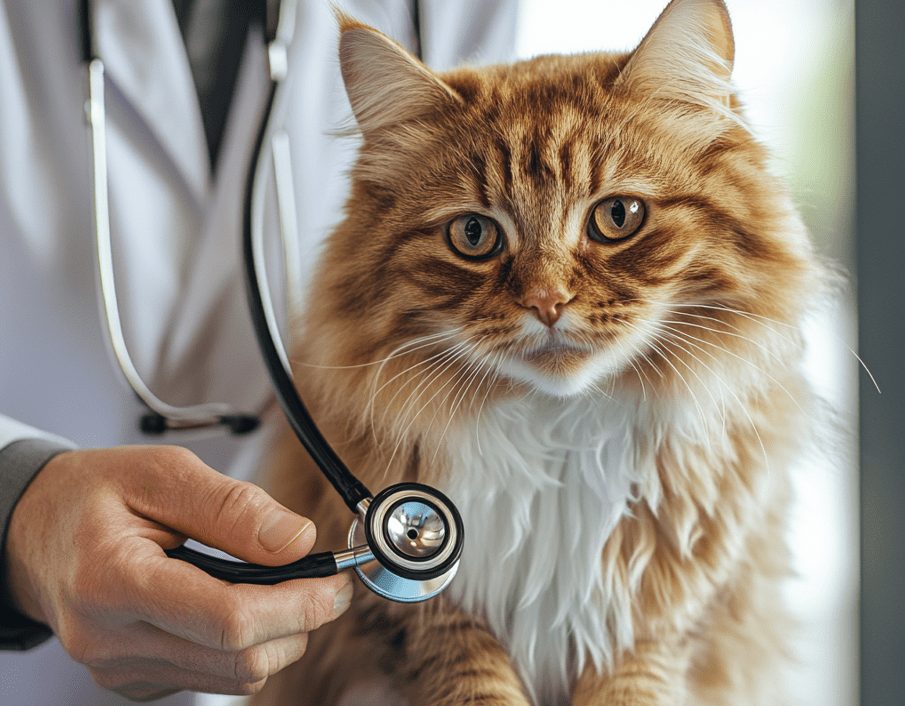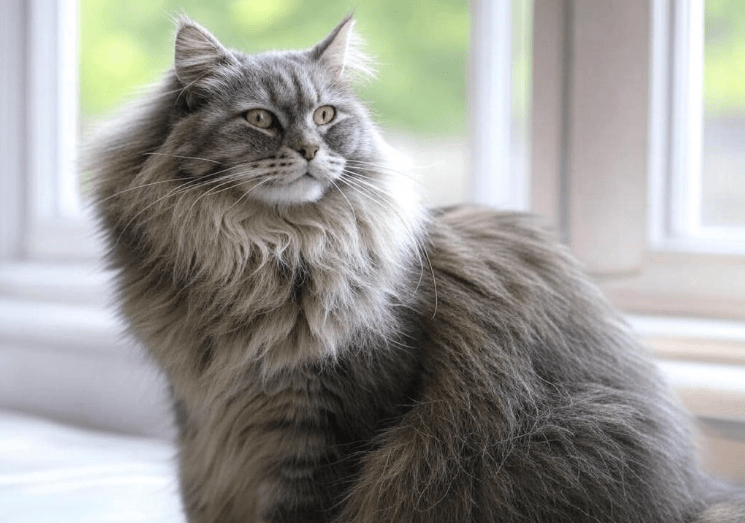
Keeping your Maine Coon cool during hot weather is essential for their health and comfort. Maine Coons, with their long, dense fur and large bodies, are particularly susceptible to overheating. As temperatures rise, these gentle giants need extra care to stay safe and comfortable. This comprehensive guide explores practical, effective strategies to help your Maine Coon stay cool, from hydration tips to creating a cool environment. Whether you’re dealing with a summer heatwave or consistently warm climates, these insights will ensure your Maine Coon thrives in hot weather.
Why Maine Coons Are Prone to Overheating
Maine Coons are one of the largest domesticated cat breeds, known for their thick, water-repellent coats and tufted paws, which are well-suited for cold environments. However, these same traits make it challenging for them to stay cool in hot weather. Their dense fur traps heat, and their large size means they generate more body heat than smaller cats. Additionally, Maine Coons are active and playful, which can lead to overheating during high temperatures if not managed properly.
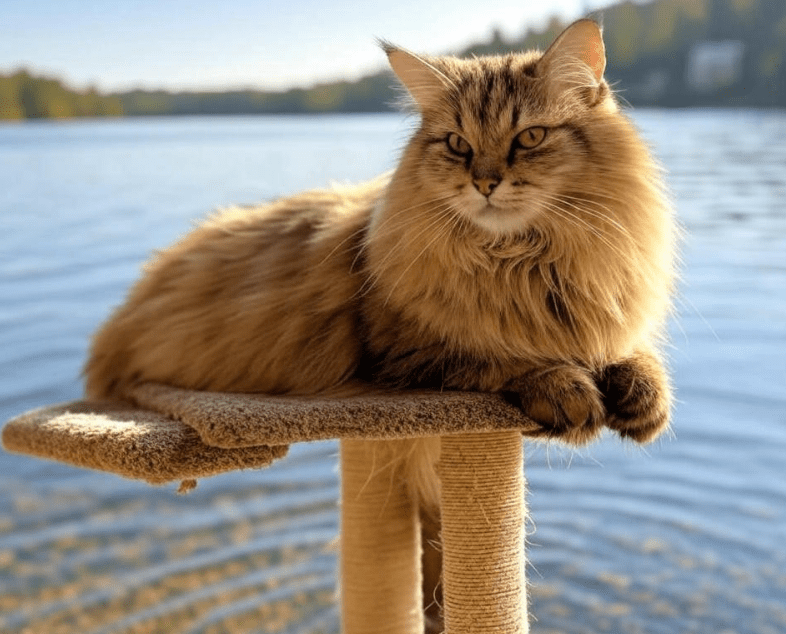
Hot weather poses risks like heatstroke, dehydration, and discomfort for Maine Coons, especially in humid climates where their bodies struggle to regulate temperature through panting or sweating. Understanding these vulnerabilities is the first step to keeping your Maine Coon cool and safe during warm seasons.
Signs Your Maine Coon Is Too Hot
Recognizing the signs of overheating is critical to intervene before the situation becomes serious. Watch for these symptoms in your Maine Coon during hot weather:
Excessive Panting: Rapid, open-mouthed breathing is a sign your cat is trying to cool down.
Lethargy: Your normally active Maine Coon may seem sluggish or unwilling to move.
Drooling: Excessive salivation can indicate heat stress.
Reddened Gums or Skin: Check your cat’s gums or inner ears for unusual redness.
Vomiting or Diarrhea: These can be signs of severe overheating or dehydration.
Rapid Heartbeat: Feel your cat’s chest for an unusually fast pulse.
Collapse or Seizures: These are emergency symptoms requiring immediate veterinary attention.
If you notice any of these signs, act quickly to cool your cat (see the section on overheating below) and contact a veterinarian if symptoms persist.
How to Keep Your Maine Coon Cool in Hot Weather
Preventing overheating requires proactive measures to manage your Maine Coon’s environment, grooming, and lifestyle. Here are practical, vet-approved strategies to keep your Maine Coon cool:
Ensure Proper Hydration
Hydration is the cornerstone of keeping your Maine Coon cool. Cats often don’t drink enough water naturally, so you’ll need to encourage it during hot weather.
Provide Fresh Water: Place multiple water bowls around your home in accessible, shaded areas. Change the water daily to keep it fresh.
Use a Pet Fountain: Maine Coons are often attracted to running water, and a cat water fountain can encourage drinking. Look for models with filters to keep water clean.
Add Wet Food: Incorporate wet cat food into their diet, as it has higher water content than dry kibble. You can also mix water or low-sodium broth into their food for extra hydration.
Offer Ice Cubes or Chilled Water: Some Maine Coons enjoy licking ice cubes or drinking slightly chilled water. Place a few cubes in their bowl for a fun, cooling treat.
Monitor Water Intake: Keep an eye on how much your cat drinks. If they’re not drinking enough, consult your vet for advice on hydration supplements.
Create a Cool Environment
Your home should be a safe haven for your Maine Coon during hot weather. Adjust their environment to maintain a comfortable temperature:
Use Air Conditioning or Fans: Keep your home cool with air conditioning set to 75–80°F (24–27°C). If AC isn’t available, use fans to circulate air, but ensure cords are out of reach to prevent chewing.
Provide Shaded Areas: Set up cool, shaded spots with soft bedding in areas away from direct sunlight. Basements or tiled floors are naturally cooler and appealing to cats.
Cooling Mats: Invest in pet-safe cooling mats that use gel or water to absorb and dissipate heat. Place them in your cat’s favorite lounging spots.
Close Curtains or Blinds: Block out sunlight during the hottest parts of the day to keep indoor temperatures down.
Ventilation: Ensure good airflow by opening windows (with secure screens) during cooler parts of the day, like early morning or evening.
For outdoor Maine Coons, create a shaded outdoor area with a pet-safe tent, canopy, or natural cover like trees. Always supervise outdoor time to prevent overheating.
Grooming for Temperature Regulation
A Maine Coon’s thick coat can trap heat, so regular grooming is essential in hot weather to keep them cool and comfortable.
Brush Regularly: Brush your Maine Coon 2–3 times a week to remove loose fur and prevent matting, which can trap heat. Use a de-shedding tool for best results.
Avoid Shaving: While it may seem tempting, shaving a Maine Coon’s coat can expose their skin to sunburn and disrupt their natural temperature regulation. Instead, focus on thinning the undercoat with professional grooming if needed.
Check for Mats: Mats can cause hot spots and discomfort. Gently remove them with a comb or seek a professional groomer for severe cases.
Clean Paws and Ears: Sweat and debris can accumulate in tufted paws and ears, leading to irritation. Wipe them gently with a damp cloth to keep them cool and clean.
Schedule Professional Grooming: If you’re not confident grooming your Maine Coon, a professional groomer can thin their coat safely while preserving its protective qualities.
Provide Cooling Accessories
Cooling accessories can make a big difference in your Maine Coon’s comfort during hot weather. Here are some cat-safe options:
Cooling Mats or Beds: As mentioned, gel-filled or water-based cooling mats are excellent for lounging. Look for durable, non-toxic models.
Chilled Towels: Place a damp, cool towel in your cat’s favorite spot for them to lie on. Refresh it every few hours to maintain the cooling effect.
Cooling Bandanas: Pet-safe cooling bandanas or collars use evaporative cooling technology to lower your cat’s body temperature. Ensure they fit comfortably and aren’t too tight.
Frozen Treat Dispensers: Freeze water or low-sodium broth in a Kong toy or similar dispenser for a cooling, interactive treat.
Always supervise your Maine Coon with new accessories to ensure they’re safe and comfortable.
Adjust Feeding and Activity Schedules
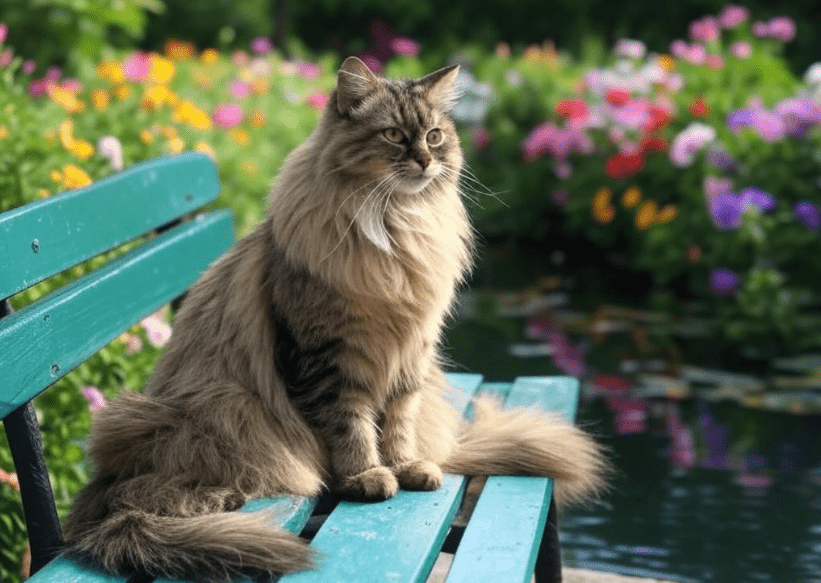
Hot weather can affect your Maine Coon’s appetite and energy levels. Adjust their routine to keep them cool and healthy:
Feed During Cooler Hours: Offer meals early in the morning or late in the evening when temperatures are lower. This prevents digestion from raising their body temperature during the hottest parts of the day.
Smaller, Frequent Meals: Large meals can increase body heat. Offer smaller portions throughout the day to keep your cat comfortable.
Limit Strenuous Activity: Maine Coons love to play, but intense activity in hot weather can lead to overheating. Schedule playtime for cooler hours and use low-energy toys like feather wands or laser pointers.
Indoor Play: Keep play sessions indoors during peak heat to avoid sun exposure. Create a stimulating indoor environment with toys, tunnels, and climbing structures.
Monitor Outdoor Time
If your Maine Coon enjoys outdoor time, take extra precautions to keep them cool and safe:
Limit Outdoor Time: Allow outdoor access only during cooler parts of the day, such as early morning or late evening. Avoid midday heat, typically between 10 a.m. and 4 p.m.
Provide Shade and Water: Set up a shaded area with a water bowl or portable fountain. Check water frequently to ensure it stays cool and clean.
Use a Harness or Enclosure: If your Maine Coon roams, use a cat-safe harness or outdoor enclosure to keep them in a controlled, shaded area.
Check Paw Pads: Hot surfaces like pavement or sand can burn your cat’s paws. Test surfaces with your hand—if it’s too hot for you, it’s too hot for them.
Never Leave in a Car: Never leave your Maine Coon in a parked car, even with windows cracked. Temperatures can soar within minutes, leading to fatal heatstroke.
Foods and Treats to Help Your Maine Coon Stay Cool
Diet plays a role in keeping your Maine Coon cool. Certain foods and treats can boost hydration and provide cooling benefits:
Wet Food: High-moisture wet food (70–80% water content) is ideal for hot weather. Look for high-quality, vet-approved brands with lean proteins like chicken or fish.
Homemade Frozen Treats: Make cat-safe frozen treats by blending wet food, water, or low-sodium broth and freezing it in ice cube trays or silicone molds. Avoid ingredients toxic to cats, like grapes, raisins, or onions.
Hydrating Fruits: Small amounts of cat-safe fruits like watermelon or cantaloupe (seedless and rind-free) can provide hydration and a cooling snack. Offer sparingly as a treat, not a meal replacement.
Electrolyte Supplements: If your Maine Coon is dehydrated or at risk, ask your vet about pet-safe electrolyte supplements to add to their water.
Avoid Heavy Treats: Skip calorie-dense treats like fatty meats or dairy, which can increase body heat during digestion.
Always introduce new foods gradually and consult your vet if your Maine Coon has dietary restrictions or health conditions.
What to Do If Your Maine Coon Overheats
Despite your best efforts, overheating can happen. If your Maine Coon shows signs of heat stress or heatstroke, act quickly:
Move to a Cool Area: Bring your cat to a shaded, air-conditioned, or fan-cooled space immediately.
Lower Body Temperature: Apply cool (not cold) water to their fur, paws, and ears with a damp cloth or spray bottle. You can also place them on a cool, damp towel.
Offer Water: Encourage drinking by offering fresh, cool water. Do not force them to drink, as this can cause choking.
Monitor Symptoms: Check for improvement in panting, lethargy, or other symptoms. If they don’t improve within 5–10 minutes, contact a veterinarian.
Seek Veterinary Care: Heatstroke is a medical emergency. Call your vet or an emergency clinic for guidance. If symptoms like collapse or seizures occur, seek immediate care.
To prevent future incidents, review your cooling strategies and make adjustments based on your cat’s needs and local weather conditions.
Conclusion
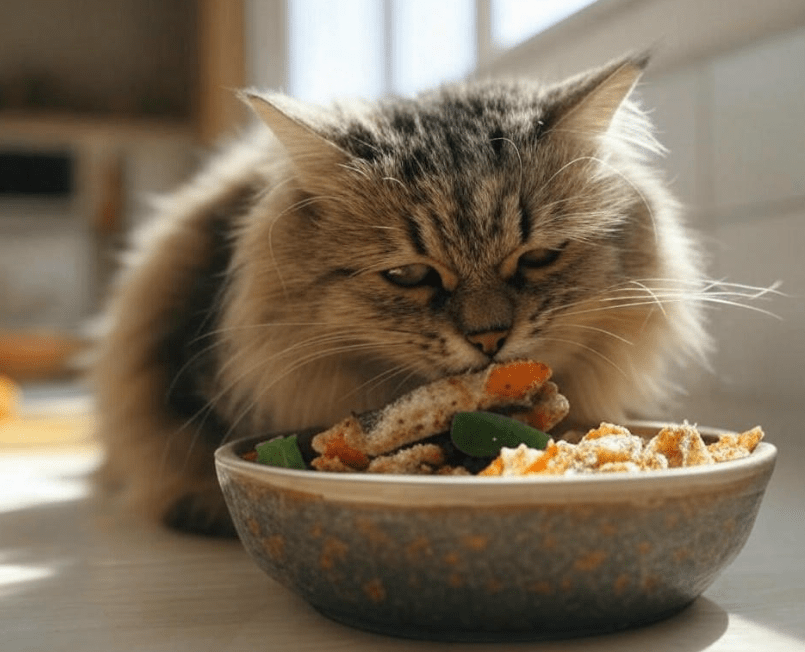
Keeping your Maine Coon cool in hot weather is a vital part of responsible pet ownership. Their thick fur, large size, and active nature make them prone to overheating, but with the right strategies, you can ensure they stay comfortable and healthy. From providing ample hydration and a cool environment to adjusting grooming and activity schedules, these practical tips will help your Maine Coon thrive in warm temperatures. By staying vigilant for signs of overheating and acting quickly if issues arise, you can protect your gentle giant from the risks of hot weather.
Implement these strategies year-round in warm climates or during summer months, and consult your veterinarian for personalized advice if your Maine Coon has specific health needs. With proper care, your Maine Coon will stay cool, happy, and ready to enjoy their playful, affectionate nature no matter the temperature.

